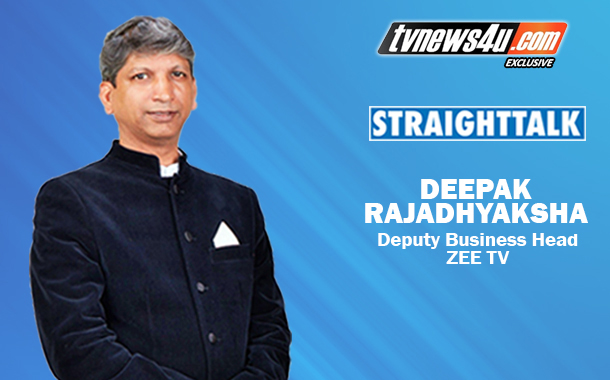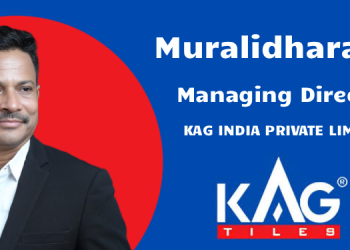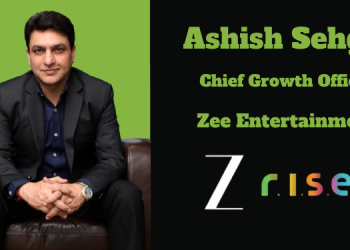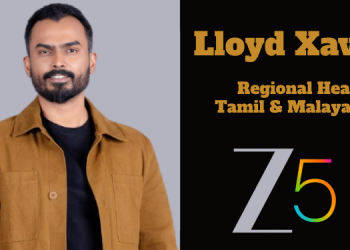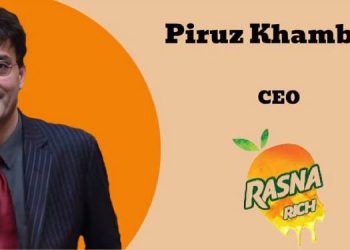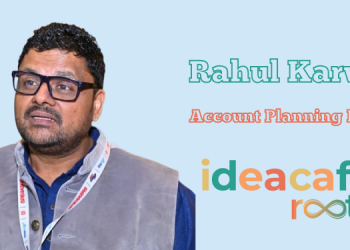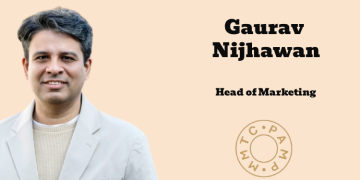TVNEWS4U EXCLUSIVE
By Yohan PC
With the fourth season of the ongoing flagship dance reality show, DID Li’l Masters, Zee TV once again is bullish on its non-fiction reality content, which clearly has been amongst the most popular franchises the channel has created in the past few years. We caught up with Deepak Rajadhyaksha, Deputy Business Head, Zee TV for a chat on the trends and scope on non-fiction programming in light of their launch of season 4 of their popular franchise DID Li’l Masters, wherein he touched upon the genre and some specifics w.r.t marketing, cross promotion and cross platform utilization such as the Zee group’s recently launched large OTT platform, Zee5. He also shared light on why ZEEL is signing up young performers of DID Li’l Masters to three-year contracts.
Excerpts:
What is your assessment of the opportunity that dance / music reality and talent shows offer to broadcasters?
Non-fiction and talent hunt shows in specific, as a genre, is a growing one for Hindi GECs – offers a massive opportunity in terms of viewership as well as getting partners on board From an advertising point of view as it brings on board a larger spectrum of audiences – these shows are family-friendly and male and child-inclusive and therein lies the opportunity.
What is unique about the latest season of DID Li’l Masters?
Season 4 of DID Li’l Masters celebrates the dancing talent of the youngest generation of the country, it enables them to take charge of their destiny, pursue their passion and write an extraordinary future in the world of dance.
The differentiator this season is the lens we’ve applied while shortlisting and selecting the talent – it is only the talent that commands an instant following and a celebrity status that has made the cut. And hence we call our kids – Blockbuster Bacche. The format this year is now open to solo performances, duets, trios and groups.
The season marks the debut of Chitrangada Singh and Siddharth Anand as judges as they mentor the contestants alongside Marzi Pestonji. The format of DID Li’l Masters and the benchmarks of dancing excellence that the show has set are its USP.
The show has served as a stepping stone to the careers of much sought-after dancing stars like Faisal Khan, Avneet Kaur, Teriya Magar and Harpreet. This year, the show will feature four skippers Vaishnavi, Tanay, Jeetumoni and Radha Sherpa who are all discoveries of the same platform and have grown ever since they shot to fame on a previous season of the show. They will be working closely with the contestants and will be sharing their dance expertise with them to transform them into blockbuster performers.
Who are you primarily marketing it to? Children, parents, schools? How are you marketing it?
Our primary target audience for DID Li’l Masters are females in the age group of 15 years and above. Males in the same age group make for a passive audience. We have a robust marketing plan in place for promoting the show across platforms, such as TV, outdoor and digital outreach highlighting our core brand campaign #DanceKeBlockbusterness.
Our outdoor plan taps the Delhi and Mumbai region extensively along with insertions in key publications. The team has closely worked on an amplification strategy for the show, where we will be running promos and effectively promoting content on our digital platforms simultaneously.
How will you use ZEE5 to cross-promote this show? Will you be using additional sidelines content From the making etc of the show to push consumption on and therefore numbers on and awareness of ZEE5?
We have exclusive content in the form of special snippets and behind-the-scenes moments, which our viewers can view exclusively on Zee5. There is an option of LIVE TV too, where the viewers can consume content online on their personal device. With Zee5, the viewers can view and resample their favourite shows as per their convenience.
We have specially designed content in the form of special snippets and behind the scenes moments for our consumers on Zee5. The special packaging helps our viewer base to resample their favourite shows on the go.
In your previous singing reality shows, while the participants would perform, there used to be a super on TV which said, to the effect, ‘If you want to book these singers write to ZEEL’. So would you be doing the same with DID Li’l champs contestants as well and tie them with ZEEL under a contract and license them for commercial work?
Yes, we will be signing the kids up to a three-year contract to lay the foundation of their careers. The supers you are referring to, are run on the channel during the telecast of the show for more exposure for the participants’ career growth, increase in opportunities which help open new avenues for talent. We are actively involved with mentoring the talent, shaping their careers and selecting the shows and programs that they should take up, keeping in mind the various child policies.
The weekends are assumed to be the preserve of talent and reality non-fiction shows. How lucrative is a weekend slot on a standalone basis? Do the very expensive non-fiction shows, which are spectacularly produced, give good returns in terms of Ad revenues, or are they used strategically to market and cross promote other fiction staples or forthcoming shows, and for subscription/distribution pull for the channel or OTT service?
In terms of viewership, weekdays and weekends are at par with each other; there is no distinction. Be it fiction or non-fiction, it is not about the scale of production value, it’s about the content that drives the ratings for a show, which in turn determines the ad revenue and pulls in subscriptions for OTT services.
Over the years, we have seen that non-fiction formats serve as a good platform to promote our other properties, and since our fiction artists also enjoy a robust following, cross promotion across fiction and non-fiction is invariably a win-win that helps us reach out to a larger set of audiences.
How long will Did L’il Masters run and what is your policy and strategy on FPC scheduling for reality and non-fiction?
Across non-fiction formats we follow a three-month timeline. The strategy for FPC scheduling varies, depending on the need of the hour for both reality and non-fiction shows. The scheduling for shows is dependent on the format, its corresponding timelines and also the suitability of a subject for a certain timeslot basis the kind of audience demographics that the time slot typically draws.
Is the weekday now an absolute no-no for this genre?
Non-fiction shows have their own set of loyal audiences, who will consume the content irrespective of when it is aired. However, having said that, the target audience for non-fiction shows, especially the talent hunt formats with singing and dancing, call for an extremely relaxed mood and weekends make for a better family viewing experience, as the entire family comes together to watch their favourite show.

